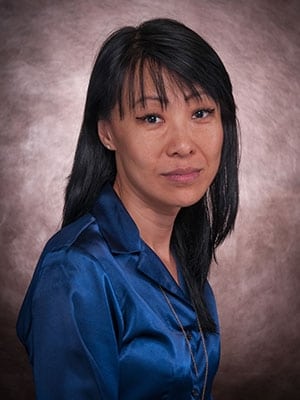Digital Media and Communications (MA, 1.5 Years or 3 Semesters)
| Duration | 1.5 years |
| Qualification Awarded | Master of Arts in Digital Media and Communications |
| Level of Qualification | Master Degree (2nd Cycle) |
| Language of Instruction | English |
| Mode of Study | Full-time or Part-time |
| Minimum ECTS Credits | 90 |
Request Information
Profile of the Programme
The programme is designed to be completed in one calendar year (12 months), over a fall, a spring and a summer semester of 13 weeks. Working professionals have the part-time study option which may take longer. The programme consists of core courses, specialisation requirements and electives. Students are required to attend lectures and seminars and engage in individual as well as group-based learning activities.
Aims
What role does digital media, particularly social media, play in the economy, politics and everyday life? How has social media changed the practice of journalism, public relations and advertising? The MA in Digital media and Communications addresses these and similar questions that have emerged out of the rise of social media and its increasing domination of the media and communication professions. This programme offers a critical analysis of the operation, functions, use, embeddedness and ramifications of social media in a globalised, networked society. It is aimed at people who wish to acquire a critical understanding of social media and learn how to analyse and mobilise them strategically. The programme places emphasis on an evidence-based, scientific examination of current and emerging digital media practices and trends and on helping students develop their ability to successfully utilise social media in the practice of journalism, public relations, marketing and advertising.
Objectives
The objectives of the MA in Digital Media and Communications are to provide a critical understanding of current theories, key concepts and new research methods related to social media, investigate institutional, social and technical factors shaping social media practices, examine social media practices as utilised by a variety of actors, including journalists, businesses, politicians and public figures, and enable students to develop effective social media strategies in the practice of journalism, public relations, political lobbying, marketing and advertising.
Career Prospects
Graduates of the programme can be employed as online programme directors, social media strategists or public relations officers, reporters and producers in the mass media such as newspapers and magazines, public relations and advertising agencies and state and private radio and TV channels. This programme will also prepare students to embark on careers in political communication, research and consultancy.
Access to Further Studies
Upon completion of the programme, students have direct access to further studies. Admission to the Ph.D. programme in Media and Communication offered by the department. This will offer a valuable gateway into a career in academia.
Admission Criteria
The minimum general requirement for admission to the post-graduate degree programme is a Bachelor Degree from a recognised university.
English Language Proficiency
Students satisfy the English requirements if their first degree was taught in English. Otherwise, they would need to present a minimum TOEFL score 550 and above, or Computer-based TOEFL score of 213 and above, or Internet-based TOEFL (iBT) score 79-80 and above, or GCSE (or GCE) English Language “O” Level of “C” or above or IELTS of 6.5 and above or Cambridge Exams (First Certificate with Grade B and above, as well as Proficiency with Grade C and above or a score placement at the ENGL-100 level of the University English Placement Test. The University offers English courses at various levels to help students reach the required standard for admission to a graduate program.
Course assessment usually comprises of a comprehensive final exam and continuous assessment. Continuous assessment can include amongst others, mid-terms, projects, and class participation.
Letter grades are calculated based on the weight of the final exam and the continuous assessment and the actual numerical marks obtained in these two assessment components. Based on the course grades the student’s semester grade point average (GPA) and cumulative point average (CPA) are calculated.
The student must complete 90 ECTS and all programme requirements.
A minimum cumulative grade point average (CPA) of 2.0 is required. Thus, although a ‘D-‘ is a PASS grade, in order to achieve a CPA of 2.0 an average grade of ‘C’ is required.
On completion of the programme the student will be able to:
- Demonstrate an advanced understanding of mass communication processes
- Demonstrate improved competence in dealing with media production and consumption
- Comprehend media production and criticise media content in a constructive manner
- Exhibit a specialty in particular areas, in order to prepare for careers in media research, public relations, journalism, media criticism, advertising, media management and media regulation
- Pursue career development in the media and/or secure high-level employment in media-related professions
- Further their theoretical and analytical research competencies by pursuing doctoral studies
Section: A Required Courses
Min. ECTS Credits: 90 Max. ECTS Credits: 90
| Course ID | Course Title | ECTS Credits |
|---|---|---|
| MCOM-501 | Digital Media Innovation and Social Transformation | 10 |
| MCOM-502 | Digital Communication, Culture and Society | 10 |
| MCOM-503 | Digital Media Content | 10 |
| MCOM-512 | Digital Sports, Health and Lifestyle Communication | 10 |
| MCOM-520 | Public Relations and Advertising in the Digital Age | 10 |
| MCOM-522 | Social Media Management | 10 |
| MCOM-590 | Research Methods in Media and Communications | 10 |
| MCOM-595 | Thesis | 20 |
Section: B Unallocated Courses
Min. ECTS Credits: 0 Max. ECTS Credits: 0
Semester 1
| Α/Α | Course Name | Course Code | Number of ECTS | Lecturer |
|---|---|---|---|---|
| 1 | Digital Media Innovation and Social Transformation | MCOM-501 | 10 | Prof. Tao Papaioannou |
| 2 | Digital Communication, Culture and Society | MCOM-502 | 10 | Dr Marilena Zackheos |
| 2 | Digital Media Content | MCOM-503 | 10 | Dr Mike Hajimichael |
Semester 2
| Α/Α | Course Name | Course Code | Number of ECTS | Lecturer |
|---|---|---|---|---|
| 4 | Digital Sports, Health and Lifestyle Communication | MCOM-512 | 10 | Dr Nicholas Nicoli |
| 5 | Public Relations and Advertising in the Digital Age | MCOM-520 | 10 | Prof. Tao Papaioannou |
| 6 | Social Media Management | MCOM-522 | 10 | Dr Marcos Komodromos |
Semester 3
| Α/Α | Course Name | Course Code | Number of ECTS | Lecturer |
|---|---|---|---|---|
| 7 | Research Methods in Media and Communications | MCOM-590 | 10 | Dr Mike Hajimichael |
| 8 | Thesis | MCOM-595 | 20 | Dr Mike Hajimichael |
The above semester breakdown is an indicative one. A few of the courses are electives and can be substituted by others. Students may contact their academic advisor and consult their academic pathway found on this website under “Schools & Programmes”.






